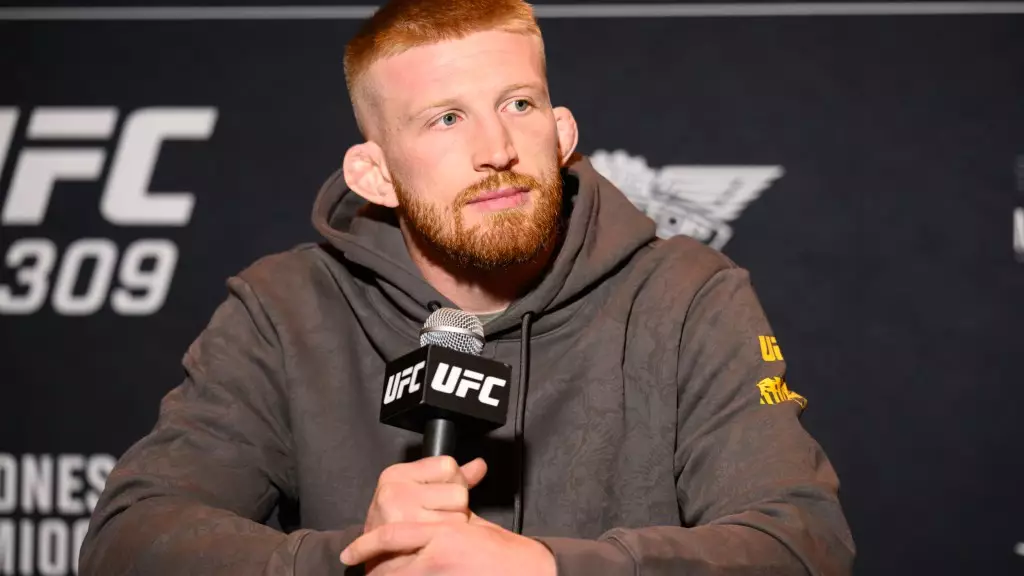In the world of mixed martial arts (MMA), commentary plays a crucial role in shaping fan perception and athlete reputation. This was glaringly evident during UFC 309, where the spotlight fell on the interaction between Daniel Cormier and rising star Bo Nickal. Cormier’s remarks about Nickal following his unanimous decision victory over Paul Craig struck a chord — one that left Nickal feeling undervalued. Cormier suggested that Nickal still needs more seasoning to face elite competition, specifically mentioning the likes of Khamzat Chimaev. While these comments were arguably rooted in a desire for Nickal’s safety and growth, they ignited an emotional response from the fighter.
Cormier expressed surprise at Nickal’s reaction to his analysis. He characterized Nickal as a talented athlete who possesses championship potential but might not be ready to challenge top-tier opponents just yet. This tension raises important questions regarding the subjective nature of commentary. It illustrates how statements can be interpreted through divergent lenses, leading to misunderstanding. Cormier finds himself grappling with the duality of his role—offering constructive criticism while also needing to uphold the morale of up-and-coming fighters. His position as a past dual-champion adds complexity to this dynamic, as expectations weigh heavily upon him to seemingly uplift newer athletes.
The Learning Curve in Professional Sports
Nickal’s fight against Craig was notable; despite securing a win, it was the first time he had to rely on judges’ scores, a reality check that any fighter must confront eventually. His decision not to attempt takedowns came under scrutiny, especially given his wrestling pedigree. One might argue this reflects a tactical choice rather than a lack of ability—indicating growth in understanding when to engage versus when to assert dominance. Contextually, Nickal’s desire to push forward swiftly in his career might clash with the traditional view of pacing developmentally, sparking a broader conversation regarding coaching, strategy, and fighter readiness.
Cormier’s intention to foster a dialogue surrounding Nickal’s performance was undoubtedly well-meaning. However, it also underscores how the landscape of discourse in professional sports requires sensitivity. Miscommunication can lead to frustration, especially for a fighter striving to carve a name for himself amidst the intense scrutiny that comes with the sport. As discussions evolve in forums like social media and post-fight reviews, a constructive approach may serve as a bridge between honest critique and athlete empowerment. The incident highlights a unique context for dialogue—the bridge between experience and fresh talent, driving home the need for patience and deliberate growth in the path to success.
In an age where narratives unfold instantaneously, it is vital for commentators and analysts to navigate their insights with care. In the case of Cormier and Nickal, the underlying theme revolves around the cultivation of talent while acknowledging the intricacies of performance critique. While heartfelt intentions can sometimes misfire, what ultimately remains is the shared objective to uplift the sport—a responsibility that lies equally with those providing commentary and those absorbing it. The exchange can serve as a pivotal lesson, reminding all involved of the delicate balance needed in celebrating potential while recognizing areas for improvement.

